
Highlighting the latest ophthalmology-related news reported across MJH Life Sciences™.

Highlighting the latest ophthalmology-related news reported across MJH Life Sciences™.

Birth control guidance provided to women taking rheumatoid arthritis therapies is lacking, and other rheumatology news reported across MJH Life Sciences™.

Novartis is teaming up with the Gates Foundation to develop a gene therapy for sickle cell disease; the World Health Organization reports a drop in global cases of coronavirus disease 2019 (COVID-19); storms hinder vaccine rollout across the United States.

An engineered lentivirus was created to avoid some of the drawbacks associated with current gene therapy vectors for sickle cell disease (SCD) and beta-thalassemia.

FDA accepts for priority review a Biologics License Application for V114, Merck's investigational 15-valent pneumococcal conjugate vaccine; bluebird bio will be split into 2 publicly traded drug companies; a new variant of coronavirus is reported in Japan.
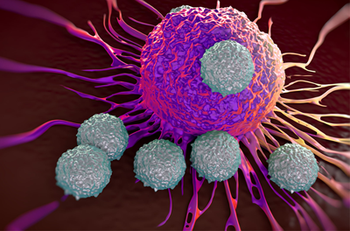
The findings help explain why costly CAR T-cell therapy does not work for some patients.

Combining chimeric antigen receptor (CAR) T-cell therapy and an oncolytic virus were more potent against solid tumors than CAR T-cell therapy alone in mouse models of cancer.

Evidence-Based Oncology regulatory updates for August 2020 feature coverage of Kite Pharma's new CAR T-cell therapy and selinexor in DLBCL.

Evidence-Based Oncology managed care updates for August 2020 feature coverage of liquid biopsies, companion diagnostics, and CAR T-cell therapy.

The patient guide explains 2 possible side effects, cytokine release syndrome and immune effector cell-associated neurotoxicity syndrome, that need to be caught quickly in order to be reversible.
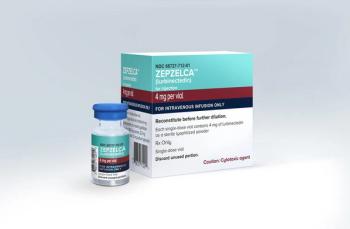
Investigators reported in Lancet Oncology that second-line treatments are needed in small cell lung cancer, as few options exist for these patients once first-line therapy fails.

Investigators hope that an experimental test could detect the novel coronavirus at a much lower cost than current tests; the FDA has extended the action date for a chimeric antigen receptor (CAR) T-cell therapy application from Bristol Myers Squibb (BMS); engineering teams devise inexpensive ventilators for emergency use.

The American Medical Association Foundation announced a national fellowship program to promote best practices and shared outcomes for the LGBTQ community; the FDA issued guidances promoting development of gene therapy products; the CDC announces 110 possible cases of coronavirus in the United States.

A lawsuit filed by a former executive of Juul claims they knowingly sold 1 million contaminated pods; Novartis trial for its Zolgensma gene therapy stopped amid safety concerns; charts show worsening air quality in Louisiana.

Novartis hid manipulated data about its $2 million gene therapy Zolgensma from the FDA; US District Judge Kristine Baker granted a preliminary injunction preventing Arkansas from enforcing 3 abortion restrictions; a federal judge in Ohio expressed support for a plan by attorneys representing cities and counties suing US opioid manufacturers and distributors that would bring every US community into their settlement talks despite objections from most states.
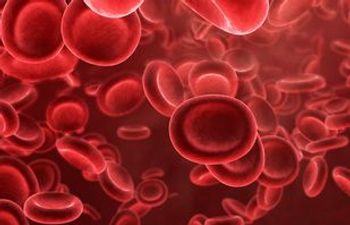
Orphan drug status applies to therapies that will treat fewer than 200,000 patients in the United States.

Dozens of doctors and other medical professionals have been charged with exchanging opioids and other drugs for sex and cash; the first 2 patients in the United States have been treated with CRISPR; doctors have cured infants of immunodeficiency syndrome using gene therapy made from HIV.

Federal contractors lost not only wages during the 5-week government shutdown, some of them also lost health insurance; with advances in gene therapy, scientists are beginning to talk about a cure in sickle cell disease; there’s bipartisan interest in attacking the issue of unexpected medical bills, and the effort has been aided by President Donald Trump, who voiced support last week for protecting patients.
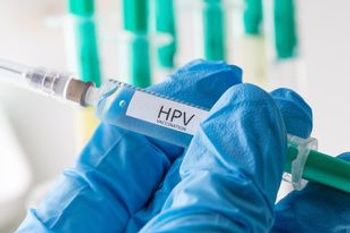
A report from the President’s Cancer Panel has found that use of human papillomavirus (HPV) vaccines remain low, despite improvements; Novartis believes that its new gene therapy to treat spinal muscular atrophy could cost $4 million to $5 million per patient; the chief medical officer at the American Cancer Society (ACS) resigned over concerns regarding controversial fundraising partnerships.

The FDA will start to review gene therapy experiments and products the same as other treatments and drugs; Alaska and Minnesota have become models for other states looking to curb health insurance premium increases with reinsurance programs; patients with limited English proficiency often have to rely on family members and friends to interpret for them, which can have serious consequences.

The chimeric antigen receptor T-cell therapy tisagenlecleucel has been approved for a second type of blood cancer; the National Institutes of Health has started recruiting individuals for a database that will include data on more than 1 million people; Kansas’ request to impose a 3-year lifetime limit on Medicaid benefits is testing just how open the Trump administration is to allowing states flexibility.

Ronny L. Jackson, MD, would give up $1 million in retirement income to head the Department of Veterans Affairs and work in the Trump administration; mega healthcare deals endanger independent practices of primary care providers; Novartis is buying a gene therapy firm focused on spinal muscular atrophy.

Enrollment for 2018 in Affordable Care Act plans is only slightly below figures from 2017; a rare breed of antibiotic-resistant bacteria is spreading in hospitals; a new company will develop off-the-shelf CAR T-cell therapies that do not need to be personalized to the patient.

Coverage of our peer-reviewed research and news reporting in the healthcare and mainstream press.
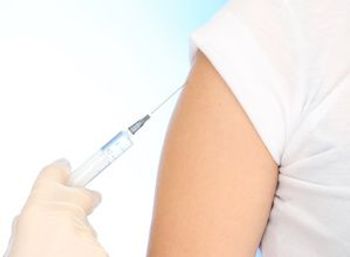
Why healthy adults should still get the flu vaccine; President Donald Trump undergoes first medical checkup of his presidency; review of Luxturna finds the $850,000 gene therapy needs a price discount.
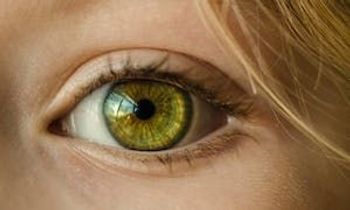
New vision loss gene therapy gets a price tag below the expected $1 million mark; new evidence finds that the prevalence of autism spectrum disorders has plateaued; hospitals are ill-equipped to care for dementia patients, but a new effort could change that.

The FDA issued new guidelines to speed up the review process for gene therapies; a new report calculates the potential societal benefits of eliminating the opioid epidemic; and one-third of Americans are unaware that the ACA's open enrollment season has begun.



A gene therapy for patients with recessive dystrophic epidermolysis bullosa (RDEB), a rare skin disease that causes the skin to be very fragile and blister easily, has been granted Breakthrough Therapy designation status by the FDA.

Published: January 30th 2021 | Updated:

Published: May 6th 2020 | Updated:

Published: April 18th 2019 | Updated:

Published: January 12th 2021 | Updated:

Published: August 16th 2018 | Updated:
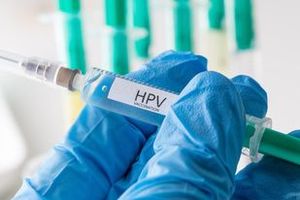
Published: November 6th 2018 | Updated: